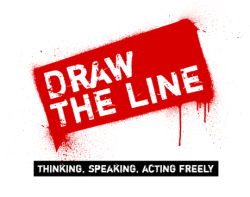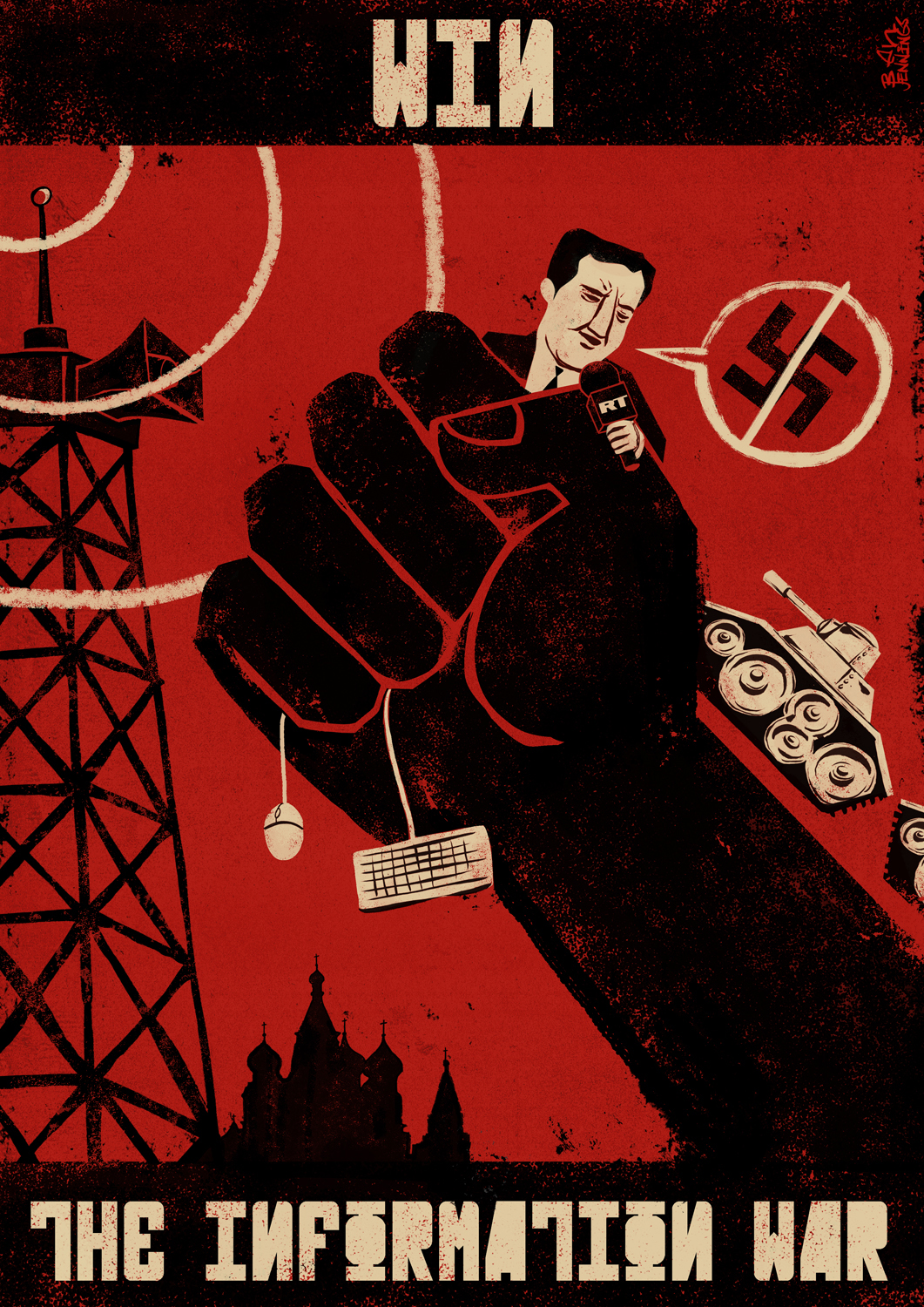16 Oct 2014 | Draw the Line, Youth Board

This month the Index Youth Advisory Board is discussing legal regimes and how they nurture or stifle the free expression of ideas. Examples of draconian laws abound: from Russia’s law banning “homosexual propaganda” to the UK’s use of RIPA legislation to violate the confidentiality of journalists’ sources.
When it comes to free speech: laws, what are they good for?
Legal frameworks protect speech and broader free expression. Take for instance Article 19 of the Universal Declaration of Human Rights which tells us that we all have the right to freedom of opinion and expression. Most of us, I’m sure, would cherish this right – who wouldn’t want to be able to express themselves freely and say what they like without the interference of the state?
In the United Kingdom, Article 10 of the Human Rights Act grants citizens freedom of expression. Most countries have different forms of Article 10. It is these laws – the ones that promote and protect our right to free speech – that form the crucial pillars of any democracy.
But do all laws protect our right to free speech?
Article 10 does a good job of granting us the confidence to speak out and ensure our voices are heard, but do other laws do the same? Or are there laws that, in some way, serve to restrict free speech? The example from Russia underline the use of legislation to restrict the right to expression. The law also curtails the right to assembly, another important part of a democratic society.
When you look into Article 10 itself, you begin to learn about the restrictions of the law and begin to understand how, in many ways, the state still does have authority over our freedom of expression. For example, Article 10 can be restricted “in the interests of national security” and in order to “maintain the authority of the judiciary”.
And what about the countries that don’t have specific laws that promote freedom of expression as strongly as the UK’s Article 10? Many may find it easy to conclude that countries like Iran have more laws that serve to restrict free speech, rather than protect it. It’s interesting to look at blasphemy laws in this instance to examine whether it protects the rights of those who are religious or restricts the rights of those who wish to criticise religion.
This month on Draw the Line, we discuss the impact a country’s laws have on our freedom of expression. Join the discussion and let us know whether laws serve to protect or restrict your right to free speech.
This article was posted on 16 Oct, 2014 at indexoncensorship.org
11 Sep 2014 | Draw the Line, Youth Board

Free expression and policing can have an antagonistic relationship. Recent events in Ferguson are demonstrative of the issues that arise as the demands for protest clash with those for civil safety.
The police are naturally drawn to the forefront of such a debate as they become the physical manifestation of a state’s commitment to free expression and the right to protest. Thus, as the Obama administration launches a federal investigation into whether the Missouri police systematically violated the civil rights of protesters, it is prescient to ask whether one can demand more of the police to protect free expression.
Undoubtedly, enforcement agencies across the world play a tricky role in facilitating expression while protecting the legitimate safety concerns of the local community. Between 2009 and 2013, police in England spent £10 million on security arrangements for EDL marches. There can also be a huge social cost to galvanic protest and the director of Faith Matters, Fiyaz Mughal, has called for a ban on such marches, claiming that “[We] know there is a corrosive impact on communities, it creates tensions and anti-Muslim prejudice in areas. I think enough is enough. I think a banning order is necessary with the EDL”.
What the recent altercations in Ferguson illustrates is that the role of the police in safeguarding free expression must not be overlooked. More importantly, this is a global issue and as six activists being retried for breaching Egypt’s protest law have started an open-ended sit-in and hunger strike it must be remembered that this debate truly gets to the heart of the basic demands of any civic society.
As scenes from Ferguson have at times resembled the images of police crackdowns in Cairo it is clear that complacency about such issues can prove disastrous. It therefore seems vital to drawn certain lines as to where we feel the police should stand when it comes to creating the basis of a safe but also free society.
This article was posted on 11 Sept 2014 at indexoncensorship.org
2 Sep 2014 | Draw the Line, Young Writers / Artists Programme, Youth Board
This month’s Draw The Line debate has shown itself to be a dilemma not easily answered in four weeks. Many of the responses we received have acknowledged that it is hardly a black and white topic but with conflicts flaring up all over the world it is an incredible important question to consider. As Usamah Mohamad writes on Twitter, “I think it is justified on a case by case” and therefore will not be answerable in umbrella terms. But can some countries prevent the media from full access based on it being a risk to security? Can conflict be a genuine excuse for censorship and the restriction of free expression?
An article written by Pat O’Mahony pitches in on the argument that the mainstream media has often its own agenda in maintaining “taste and decency”. He uses the example of Kenneth Jarecke’s renowned and “harrowing” picture which is an image which truly shows the reality of the Gulf War. Interestingly, he delved into the idea of self-censorship which involves us changing the channel, scrolling away or turning off the information entirely because even if the mainstream media does show the clips, it might be too much for us. O’Mahony describes this as a “remote control moment”. His analysis is well worth a read and he leaves us with a further unanswerable question: “In this social media era [where distressing images are a click away] should television news and newspaper editors still try to protect us from its full horrors?”
Even if we do not want to consume the media, however, shouldn’t journalists have the freedom to watch without prosecution? Such as with the criminalisation of the video of James Foley’s beheading there have been outcries of the Met police censoring journalists. An article by Index’s own Jodie Ginsberg has examined the “deeply problematic” removal of such media, especially when journalists themselves are banned from viewing the material. She argues that the Metropolitan Police cannot expect journalists to be able to report fully on an item without viewing it themselves. It’s a disturbing part of the job but it is vitally important.
Many have argued on Twitter that imposing censorship in times of war – particularly with the restriction of the internet (as seen in Ferguson and Turkey) and media access – will allow the government to continue censoring in the public interest even once the conflict has ended. As with the use of martial law to keep the peace throughout history it is often a tool of the state to restrict civilians from protesting about their treatment. Even in times of war there must be space for the provision of human rights and freedom to protest. Sheema Ghani offered the point that clamping down on critical civilians and journalists by using war as an excuse for censorship is just as good of a solution as sticking your head in the sand.
Overall, there is an understanding that some information – particularly in tenuous situations – must be kept private from citizens for the sake of state security. But with the introduction of social media and the ability for civilians to become journalists with Twitter accounts, the truth is trickling out of these conflicts despite the best efforts of their initiators. Violations are no longer kept secret as long as the Wifi connection holds up and this is a great leap forward for free expression.
This article was posted on 2 Sept 2014 at indexoncensorship.org
12 Aug 2014 | Draw the Line, News and features, Youth Board

Ben Jennings for Index on Censorship
Draw the Line: We want to hear your thoughts on key free expression issues
Each month, our Youth Advisory Board will choose a free expression topic and encourage readers to respond to the issues it raises via social media. Draw the Line also features pieces from our Young Writers/Artists programme as well as relevant features from our award-winning quarterly magazine.
This month’s question: Do wars justify censorship?
The British government established the War Office Press Bureau 100 years ago this month to censor reports from the British Army before they were issued to the press. Colonel Ernest Swinton, the first man to be appointed the Army’s official journalist, wrote later: “The principle which guided me in my work was above all to avoid helping the enemy… I essayed to tell as much of the truth as was compatible with safety, to guard against depression and pessimism, and to check unjustified optimism which might lead to a relaxation of effort.”
During the First World War, censorship was deemed crucial to send the public the right messages, and keep the enemy in the dark about tactics.
Today, especially in times of war, governments continue with their attempts to control what the public and the outside world are told, often in the name of national security.
Amid the conflict in Israel and Gaza, both sides have been guilty of clamping down on free speech and the press.
Israel last month conducted three air strikes on buildings housing media outlets in Gaza, injuring at least three journalists and, according to the Committee to Protect Journalists, violating international law.
On the Palestinian side, Hamas expelled Russia Today journalist Harry Fear after he referred to the location of rockets fired towards Israel on Twitter, and a university lecturer was arrested for criticising Palestinian president Mahmoud Abbas on Facebook.
As the internet provides a platform for everyone to publish information that might aid the enemy, reporting restrictions that were once limited to the work of journalists extend into the personal lives of us all.
In times of war, can censorship be justified in the name of keeping us safe? Or is national security simply an excuse used by governments to clamp down on their critics?
Participate in the discussion by tweeting your thoughts with the hashtag #indexdrawtheline and follow responses at Draw the Line.


